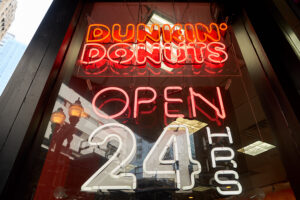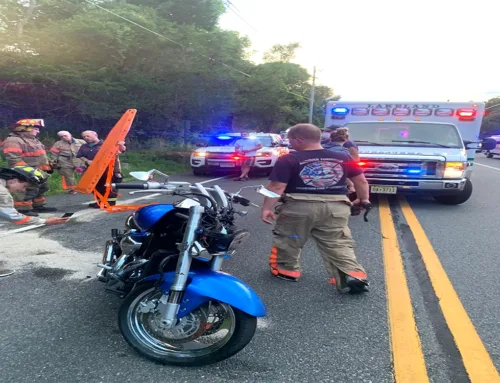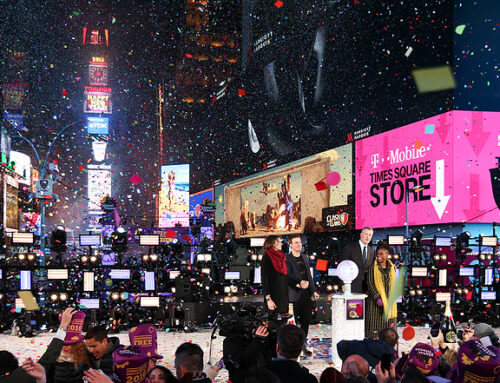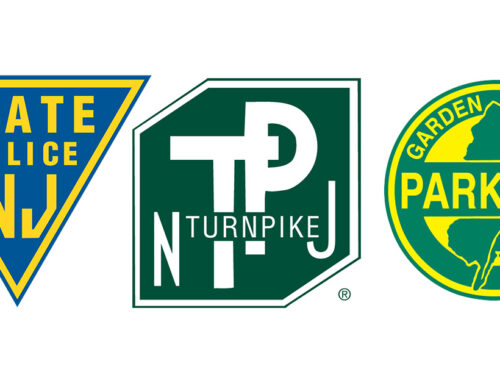If you’re a New Jersey resident looking to get your daily caffeine fix at one of the many Dunkin’ Donuts locations throughout the state, you may want to consider ordering your coffee iced. In the month of April, three separate lawsuits were filed against Dunkin’ Donuts by NJ residents, two of which involving burn injuries allegedly caused by excessively hot coffee. The third lawsuit is a premises liability case involving injuries allegedly resulting from a fall on the property.
 The first lawsuit, filed on April 4 in the Superior Court of Passaic County by Evan Arlington and his wife Stephanie Arlington-Macias, concerns an incident that took place on August 25, 2021, at a Dunkin’ Donuts location in Totowa. Their lawsuit claims that the restaurant was “negligent in the preparation, sale, and service of the coffee” due to the excessive temperature of the beverage, which caused second- and third-degree burns to Arlington’s skin when spilled in his lap.
The first lawsuit, filed on April 4 in the Superior Court of Passaic County by Evan Arlington and his wife Stephanie Arlington-Macias, concerns an incident that took place on August 25, 2021, at a Dunkin’ Donuts location in Totowa. Their lawsuit claims that the restaurant was “negligent in the preparation, sale, and service of the coffee” due to the excessive temperature of the beverage, which caused second- and third-degree burns to Arlington’s skin when spilled in his lap.
Second-degree burns penetrate the outer layer of skin (the epidermis) and damage the dermis beneath, resulting in a red and blistered burn site. The burn may be swollen, and painful, and permanent scarring may result. Third degree burns are more severe, with both the epidermis and dermis layers of skin destroyed and the burn potentially damaging the tissues below the skin. The burn site may take on a leathery appearance, and there is generally no sensation in the affected area as the nerve endings have been destroyed.
Arlington is seeking compensation for medical, and hospital care he has already received as well as that which he expects to require in the future due to his injuries, as well as loss of income. He is also seeking damages due to having sustained a permanent injury which has caused him “great pain and mental anguish.” In addition, Arlington’s wife is joining the lawsuit to seek her own compensation for “a loss of her husband’s aid, comfort, conjugal fellowship and consortium.”
A second lawsuit involving coffee-related burn injuries was filed against Dunkin’ Donuts by Paul Haggerty and his wife on April 13 in the Superior Court of Bergen County, regarding an incident on September 18, 2020, at the Valley Brook Avenue location in Paramus. According to Haggerty’s lawsuit, the lid and cup in which his coffee was served were mismatched and did not feature “adequate warnings or instructions,” and this resulted in the spillage of excessively hot coffee onto Haggerty. As a result, Haggerty asserts that he was “painfully and permanently injured” and will incur future medical and surgical expenses in the attempt to repair the damage inflicted by his burns.
Both of these cases are reminiscent of the well-known but widely misrepresented lawsuit against McDonald’s in the 1990s, in which Stella Liebeck spilled a cup of coffee ordered from a New Mexico McDonald’s locating onto her lap, causing third-degree burns to six percent of her skin and lesser burns to a further 16 percent. She was hospitalized for eight days while receiving skin grafts, suffered permanent disfigurement, and remained partially disabled for two years. Her daughter missed three weeks of work to provide necessary care for Liebeck after her release from the hospital.
During discovery for Liebeck’s case, her attorneys learned that McDonald’s required its franchisees to maintain its coffee pots at 180-190 degrees Fahrenheit. They presented expert testimony describing that coffee at 190 degrees could inflict third-degree burns after three seconds of contact, and coffee at 180 degrees would produce the same burns after about 12 to 15 seconds. They also showed evidence that competing restaurants across the city served coffee at least 20 degrees cooler than McDonald’s did.
Since Liebeck’s 1994 lawsuit, misconceptions about the case have spread widely, allowing the case to be misused as an example of frivolous litigation and excessive damage awards. The 2011 HBO documentary Hot Coffee highlighted misconceptions including the widespread mistaken belief that Liebeck suffered only superficial or minor burns, and that the damages awarded by the jury were excessive – in reality, most of the damages were punitive, due to McDonald’s reckless disregard for more than 700 previous coffee burn injuries from 1982-1992.
The third lawsuit filed against a New Jersey Dunkin’ Donuts location this month was filed by Danielle Cilurso of Camden County on April 15 regarding an incident that took place at a Gloucester Township location. Also named as defendants in the lawsuit are the Marketplace at Chews Landing and Paramount Chews Landing. Cilurso’s lawsuit alleges that, due to the failure of these parties to inspect and maintain the premises and warn patrons of potential hazards, she suffered a damaging fall that has required “arduous and prolonged medical procedures and tests,” forced her to spend substantial sums of money on her care and prevented her from performing the usual and normal activities that she could engage in prior to her injury. Like Arlington and Haggerty, Cilurso is seeking a jury trial.
Contact MyNJInjuryLawyer Howard P. Lesnik
I have handled several cases against Dunkin’ Donuts recently. I am very familiar with making claims against Dunkin’ Donuts, its employees, owners, and franchisees.
If you or a loved one suffered an injury in an accident in NJ, you should contact an attorney familiar with handling these claims. An experienced NJ Injury Lawyer will know how to obtain medical records, videos, photographs, experts, locate witnesses and contact the insurance company so you can make a claim for your injuries.
My NJ Injury Lawyer Howard P. Lesnik, Esq. offers complimentary strategy sessions to address any issue or questions you may have for your injury claim in NJ.
Please contact NJ Injury Lawyer Howard Lesnik, Esq., immediately if you were involved in an accident. I personally handle NJ personal injury cases on a regular basis. Please contact me now by email, by phoning 908.264.7701, or by completing the form to the right to schedule your complimentary 30-minute strategy session. Call me direct and I will answer 5 questions that you have about your potential claim.







